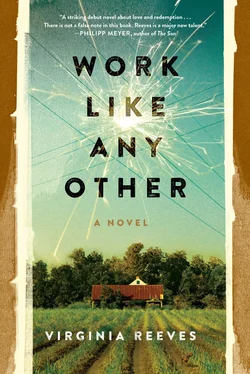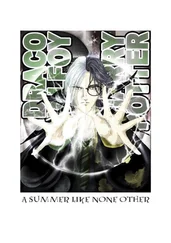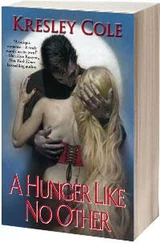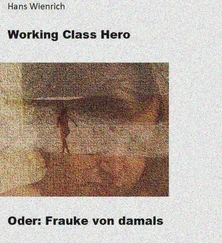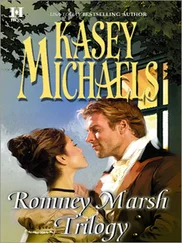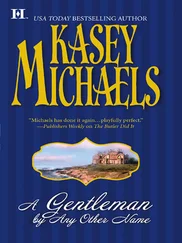Moa took a clothespin from her mouth. “I’d like to see this lawn again before nightfall.”
“Yes, ma’am.” I’d never before said those words to Moa.
Maggie trotted along behind me as I pushed the first load to the cottage, the bone a prize in her mouth. She was already calmer than she’d been when we arrived, shrugging off that nervous need to run and sniff and hunt.
“Better not get too comfortable,” I told her. “We won’t be here long.”
My arms and legs were worn-out by my second run, and I took a rest after the third. It was dusk, and the air was crisper, but my shirt was wet through with sweat. I still hadn’t retrieved my jacket from the foyer. I pumped water at the sink in the cottage and filled a small cup. Maggie poked her nose into my knee.
“Thirsty?” I filled a bowl to set on the floor. She let the bone down gently and lapped at the water with her long tongue. She’d always been a dainty drinker. Even after a tough chase, she’d keep the same gentle motion, the other dogs nearly drowning themselves in their frantic thirst.
My jacket sat on a crate of jarred food in the yard, a towel-wrapped package on top of it. Moa had brought me dinner and something for the pantry. I loaded the painting and map and photo, the silhouette, the ashtray, the bear, having saved them for the end in the half hope that they’d disappear. I added my jacket and my food, and Maggie and I started for our home.
We’d already knocked the trail back down, the grasses flattened underfoot, but I wouldn’t clear the brush or trim the branches. I’d rather duck to avoid those limbs overhead than open up a view to the big house.
Ten yards from the cottage, Maggie stopped, pointing as she’d been taught at the figure who ran toward us. Recognizing Wilson, she relaxed her pose and wagged her tail. He bent down to rub her head with his half arm, running it along the ridge of her skull. His right hand held an old thermos and a burlap sack.
“Moa thought you’d do for some coffee after your labors. Said you can keep that thermos. And there’s beans in the sack there.”
“Thank you.”
“I think this dog’s won Moa over. You have a good night, Ross.”
“You, too.”
I watched him start back toward the house, and I called out to him before he disappeared. “Wilson?”
“Yeah?”
“When will I know what’s become of my family?”
He was quiet a minute. “Suppose when the timing’s right. It’s not much of an answer, but it’s all I’ve got for you.”
“All right,” I said, though it wasn’t.
At the cottage, I emptied the last load, tipped the wheelbarrow against the siding, and sat down at the table with Moa’s food. She’d given me more ham and biscuits, enough for my breakfast, too. I pulled a jar of corn kernels out of the crate, loosened the ring, poked a hole in the lid with my silver carving knife, and pried off the top. Maggie settled back into her bone, and I poured myself a cup of coffee. A bird was singing a six-note whistle outside. “Do you know,” I remember Marie asking, “what a group of warblers is called?” These were some of her favorite bits of knowledge, her students all experts on collective nouns.
“No. What is a group of warblers called?”
“There are options. You can call them a bouquet or a confusion or a fall , but my favorite is wrench . A wrench of warblers.”
She’d told me that before we were married. These are the things I remember.
I lit one of the lamps and cleared away my crumbs, closed the remaining biscuits and ham inside a lidded tin to keep the mice away. I’d meant to fix the door, but it would wait.
In my pile of clothes, I found an old pair of pajamas, thin but soft. Pajamas were not part of Kilby’s clothing allotment. The cold water from the pump felt good against my face and back and arms as I sponged myself clean at the sink. I’d found a bathroom in what I thought was a closet between the two bedrooms, all set with a basin and a chamber pot and a soaking tub. But that would wait, too.
I opened a copy of Billy Budd, Sailor that I’d found in the closet. Marie had left it for me in the first layer, one of her last additions. I’d already read it at Kilby — poor old Billy mistaken for a mutineer by his master-at-arms, the accidental death, the court-martial, the execution sentence — and I wasn’t sure what Marie intended me to glean from it. Billy was wrongfully accused. Marie could be saying the same was true of me, that the trial, the conviction, the time at Kilby, had all been a mistake. But her silence had left me to assume that my guilt was absolute in her eyes. Maybe she’d wanted me to look only at the sentencing, Billy’s execution a parallel for my own rightful end. I could still hear the young version of her telling me to claim Stevens’s death and walk myself to Yellow Mama.
Marie had written in the front cover, Dear Roscoe . Those words in Marie’s hand were the start of every letter I’d wanted her to write.
Dear Roscoe, Gerald and I hope you enjoy this book upon your return. — Marie
Dear Roscoe. Dear Roscoe. Dear Roscoe.
What would I have had her write?
Dear Roscoe, Gerald and I look forward to reading this with you upon your return.
Dear Roscoe, We miss you terribly.
Dear Roscoe, Welcome home.
Dear Roscoe, For you, a book, with love, from your wife.
The young version of Marie had been right — she’d had nothing to say to me.
I’d thought I’d read the book again, but I wasn’t interested in Marie’s written words or the typed ones she’d gifted me — messages for a man she no longer cared to know.
THEtrees around the cottage were straight and tall, and it took two full days to fell and strip one — work that would’ve taken a quarter of the time back when I had full use of my right arm. The poles didn’t need to be perfect, but I wanted them to be smooth like the ones I’d raised for the power company. I’d found my drawknife in the closet, and I sharpened it with my file, holding it up to the sun to see the flat spots I’d missed. The beveled edge pulled the bark off in bits and pieces and then the pale wood off in strips. The motion was methodical, like mucking stalls in the dairy barn or filling tins with dog food, and my mind moved back to my old cell, Ed still there, dusty with sanded wood, tired and bitter about his chair. “Yellow!” he shouted. “They’re covering that beautiful maple with highway paint, the bastards! Painting wood is a disgrace. You hear me? They’re disgracing my profession in this bloody place.”
“I won’t paint this pole,” I told him.
We weren’t in our cell. We were in that small clearing by the cottage.
“That’a boy, Ross.”
He looked stronger, thicker in the arms and neck.
“You visiting me now?” I asked.
“Suppose.”
“Did you come here?”
“I told you I would, didn’t I? Hell, I told the State I’d build them an electric chair, and you didn’t see me backing out of that promise, did you? Paying a visit’s an easy enough commitment to see through.”
“What did Marie say?”
Ed was hesitant. “I tell you, Ross, your Marie is a fine cook. Made me a hell of a meal. But there wasn’t much said, you see.”
“You said she wasn’t home.”
“Easier that way.”
“You lay with my wife, Ed?”
“She wasn’t your wife, Ross. Hadn’t been for a while.”
Like my young Marie, this new Ed was my own making. I remember knowing that then. His words were mine — words I was putting in his mouth.
“She stopped being your wife when she lost all those future children.” He was right. Even in the good times after the power first came, Marie had remained a ghost, a hollowed-out tree, something waiting for its escape.
Читать дальше
